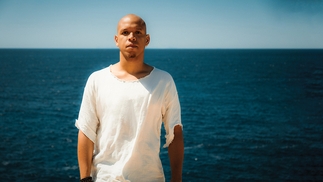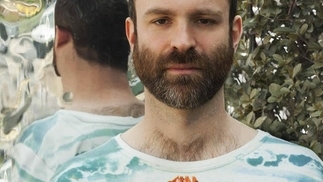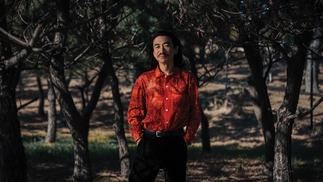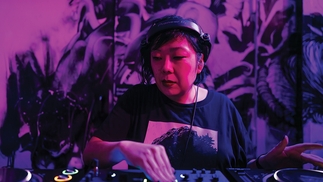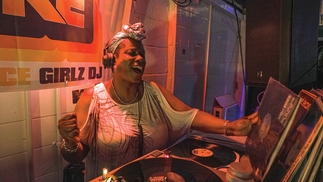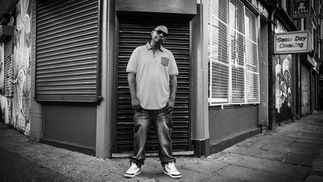On Cue: DJ Manny
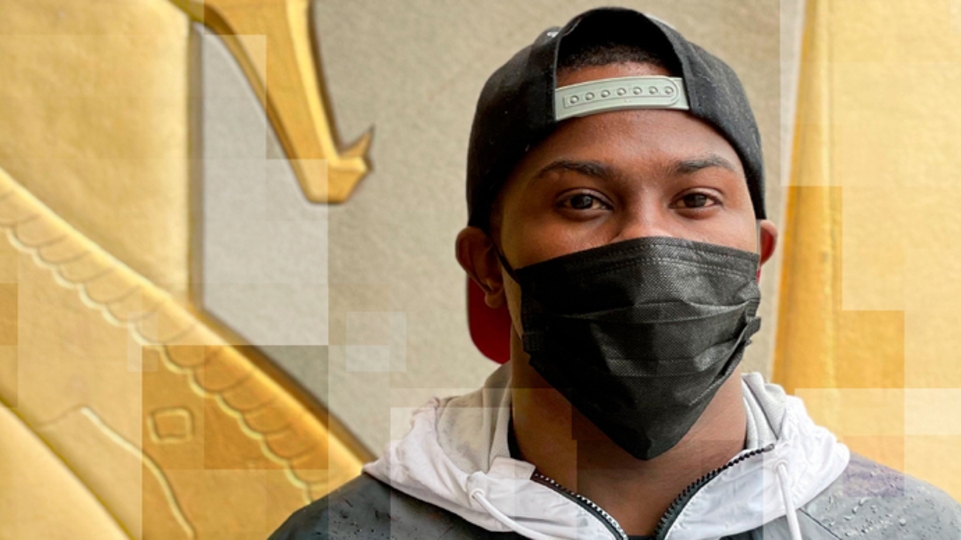
Chicago-born, New York-based footwork artist DJ Manny channels the hyper-personal, R&B-influenced sound of his new Planet Mu album ‘Signals In My Head’ in his masterful On Cue mix. A core artist in the legendary Teklife crew, he chats with Shiba Melissa Mazaza about how, after years of keeping a low profile, he’s stepping into the spotlight and how, for him, love really is the answer
The temperature in Queens, New York is a sweltering 90F degrees, and DJ Manny is on his way to spend the rest of his afternoon at Rockaway Beach. After a tough year in the US, Manny’s taken solace in the outdoors; the park he’s speaking to us from is teeming with people eager to celebrate their (relative) freedom to roam. He dips into a nearby store for water, thanks the cashier with a huge smile, and as our phone signal crackles, he makes his way back out into the fresh, open air.
Regarded as one of the pioneering artists of the Chicago footwork genre, DJ Manny has been “low-key” for some time. Over 10 years since his first release, ‘Kush On Deck’, the Teklife co-founder has been doling out bangers with the intention of breaking new sonic ground. This summer, his career hits a high note, as his latest album, ‘Signals In My Head’, is released on British label Planet Mu, who have championed footwork since 2010, with their ‘Bangs & Works’ compilations. With his big, warm laughter, DJ Manny sounds like he’s naturally at ease, a Black man ready to meet his moment.
“I feel great about this! I like how it feels for people to finally get to know who I am,” he says with a sigh of satisfaction. “I wanted to take time to get my life together, as well as my sound. I’d been making R&B remixes a lot, and I decided I could just do original tracks like that too. That’s my style... the R&B, footwork and jungle stuff with everybody repping, but there ain’t a lot of footwork music for women. There’s been a lot of music out here that’s about bashing women, you know. I wanted to make something that was for them to enjoy too.”
Born in Chicago and raised in Illinois, DJ Manny now lives in New York, and has seen first-hand how their respective dance scenes have evolved and inspired him. “I’ve been here for years, but the dance scene is way bigger in New York now. I love that footwork is catching on all over — in the States, in different countries, everywhere. To go out in New York City just to hang and to hear your music playing is like — dang!” he says with sweet surprise.
“It makes me feel so good to know that it’s not just us making this anymore,” he says, of his fellow Chicagoans. He missed the warehouse parties where footwork music first blew up, but recognises that’s in the past now.
“They were a lot more DIY. Now it’s mostly clubs, which is fine, but it’s not the same feeling of everyone dancing and doing their thing. Back in the day, it wasn’t as straightforward,” he continues, of the core, multi-layered roots of the footwork style and scene. “We’d go to house parties and they’d move through R&B, hip-hop, then footwork and juke, but now you go out and they play footwork all night. Things have changed a lot.”
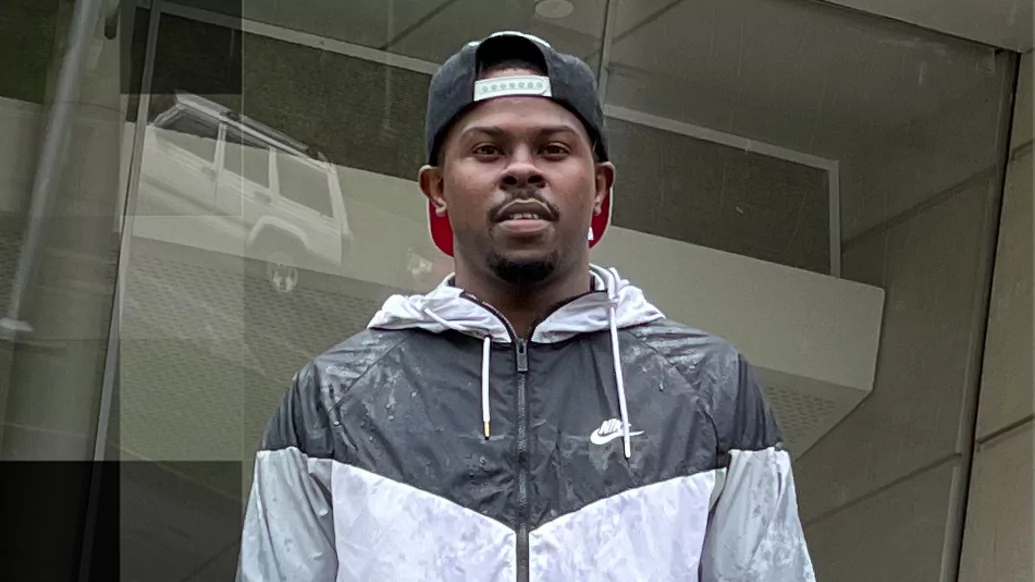
‘Signals In My Head’ amasses everything that DJ Manny loves. Peppered with smooth R&B intonations, the album takes the synths, breaks and bounce of his audio arsenal to a more dreamy, romantic place. The sleeve artwork — a darkened departure from his previous work, behind an eye-test of white text — reveals a record pressed in a nostalgic cotton-candy pink. What inspired this footwork producer to make an unprecedented “R&B love type of album”? Well, simply put, it was love.
“I live out here with my partner,” he says, of fellow dance music DJ and producer SUCIA!, “and being with her has made me go down that route. We don’t need to keep making tracks that say things like ‘She a bitch’, you know what I mean? Having a partner that has your back — having someone who will be there for you through thick and thin, and are committed to what you do and support you — will do that to you. If you can find that in a person, go with it — and you can say that about music too. Every day I hear new stuff and it makes me better.”
SUCIA! playfully describes herself as “a jackass of all trades”, and has connected with DJ Manny on a personal, professional and creative level. She designed the artwork for his last album, 2020’s self-released ‘Heat For Ya Feet’, and introduced him to music from outside of the footwork universe, like the Afro-Caribbean sounds of soca.
In the often hyper-masculine cultures of hip-hop and dance music that DJ Manny grew up in, it’s striking to see innovators like DJ Manny more able to communicate romance and softness through usually abrasive and experimental styles like footwork. As with most dance music scenes, footwork began as a means of expression and escape for young Black folk, but often left little room for women to make their mark in ways that didn’t diminish their dignity, or for men to explore their innermost emotions.
The music of ‘Signals In My Head’, though, explores a wide range of sounds and references with easeful expressions: of want and need, of fun and feeling; Manny invites the listener to just be, to slow down and “smoke and fade away”, while keeping up those playful, experimental tempo changes in the footwork style.
This “R&B love type of album” isn’t just Manny’s love letter to women, but an invitation to men to find harmony within themselves. “It’s about being honest about how you feel,” he insists. “I don’t know how to explain it, but I truly make my music for me. I like what other people like, sure, but I do this for me. Making music is an extension of you, and you have to hold true to yourself. I’ve been peeping folks switching over to the R&B side now—I peep it!” he says joyfully.
“It’s been great to have people calling me up to say they can’t wait until the album comes out, that they’re proud of me. They tell me: ‘We need this, we all need this’.” In the near future, he’s excited about shooting a video for the second track from ‘Signals In My Head’, ‘U Want It’, which flips Ginuwine’s eternally seductive banger ‘Pony’.
As our conversation winds down and the sun sets over Rockaway Beach, it feels like a new era is dawning for footwork. ‘Signals In My Head’ comes from a place of pride, honesty, self-love and mutual respect; an extension of DJ Manny’s best self, an ode to the genre he loves, and most importantly, to the one who sleeps beside him.
Listen to DJ Manny's On Cue mix below.
Tracklist:
Manny ‘Control 2021’ (unreleased)
Manny ‘Feet Start Dancing’ (unreleased)
Manny & DJ Yb ‘Like This’ (unreleased)
Manny & Phil ‘Footwork shit’ (unreleased)
Manny ‘Signals In My Head’ (Planet Mu)
Manny ‘Take That’ (unreleased)
Manny ‘Bass & Peres’ (self released)
Manny ‘All I Need’ (Planet Mu)
Manny ‘Abls’ (unreleased)
Manny ‘Hypno’ (unreleased)
Manny ‘At First Site’ (Planet Mu)
Manny ‘Wanna Dance’ (unreleased )
Manny ‘The Run’ (unreleased )
Manny ‘Battle Ground’ (unreleased)
DJ Rashad ‘Like This’ (unreleased)
Manny ‘Bull Shit We On It’ (unreleased)
Manny Ft DJ Phil ‘That Bill’ (unreleased)
Manny ‘No Other Body’ (unreleased)
Manny Ft DJ Chap ‘Peaches’ (unreleased)
Manny ‘Never Was Ah Hoe’ (Planet Mu)
RP Boo ‘Just Like That’ (Planet Mu)
Manny ‘Crazy style’ (self released)
Manny ‘Disco Riff’ (unreleased)
Manny ‘House of Juke’ (unreleased)
Manny ‘We Juking’ (unreleased)
Manny ‘Highway 57’ (unreleased)
Manny ‘Something u need’ (unreleased)
SUCIA! ‘Starboy’ (unreleased)
Manny ‘Crossover’ (unreleased)
Manny ‘Imagination’ (Self released)
Manny Ft DJ Phil ‘Having Fun’ ( Planet Mu)
Manny ‘Da Bass’ (unreleased)
Manny ‘R&B Jungle’ (unreleased)
Manny ‘U Got It’ (self released)
Manny ‘Keep That away’ (unreleased)
Manny ‘Read ya Mind’ (unreleased)
Manny ‘Here I Am’ (unreleased)
DJ Rashad ‘Let It Go’ (Hyperdub)
SUCIA! & Manny ‘Backup Hardrive’ (unreleased)
DJ Rashad ‘It's Time’ (Juke Trax)

